Last Updated on May 31, 2024
Actor Wes Studi heard that director Michael Mann was putting together a little bank robbery picture called Heat. According to Wes Studi himself, he proactively called Michael Mann’s office to land the role of Detective Sammy Casals. His passion for the character and project led to his Last of the Mohicans director casting him again in another great role that allowed him to show off some range. This allowed Wes Studi to go beyond the “leather and feathers of period dramas” even though he excels in those too. He stole the show in Best Picture Dances with Wolves and his character didn’t even have a real name, the credits call him “Toughest Pawnee”. And he is probably the only actor who can get away with asking Daniel Day-Lewis to sign his autograph… with his left foot.
He has worked alongside some of the most talented artists in the biz and made sure to thank them when he technically became the first Native American to win an Oscar. Upon accepting his unholy golden idol, he received a standing ovation from his peers and colleagues, who finally recognized this man’s work.
Iconic Native American actor Wes Studi, perfected his craft by embracing his personal and ancestral history. Using his life experiences, he is able to help audiences feel like they are fighting along side a true warrior. He had already led what most would refer to as a full life before he entered acting, so he rightfully has always seen himself as more than an actor.
So gather around and pass over that peace pipe as we try to find out how this dude became such a cinematic badass and discover What Happened to Wes Studi.
Early days and Vietnam
But to truly understand what happened to Wes Studi we must as we go back to the beginning, where the beginning began to begin beginning to begin beginning where it began beginning to begin, when he was born on December 17, 1947 in Nofire Hollow, in Northeastern Oklahoma.
Wes Studi enlisted in the Oklahoma National Guard in 1967, during the Vietnam War. As he had glorified the life of a warrior from a young age, he volunteered to go to Vietnam and was assigned to Alpha Company, 3rd Battalion, 39th Infantry Regiment, 9th Infantry Division. Studi served for 12 months in Vietnam, arriving shortly before the “Mini-Tet” Offensive in 1968. He was stationed in the Mekong Delta, where he was involved in riverine operations and patrolling. Studi’s experiences in Vietnam had a profound impact on him, and he has spoken publicly about the trauma and guilt he felt during and after his service.
After returning from Vietnam, Studi became involved with Vietnam Veterans Against the War (VVAW), a prominent anti-war organization. He participated in protests and demonstrations, speaking out against the war and the treatment of veterans. Studi’s activism during this time was deeply personal, driven by his own experiences and the struggles he faced readjusting to civilian life. He came to sympathize more with the Vietcong soldiers he faced in war than his fellow Americans that spit on him and shamed him for doing his duty.
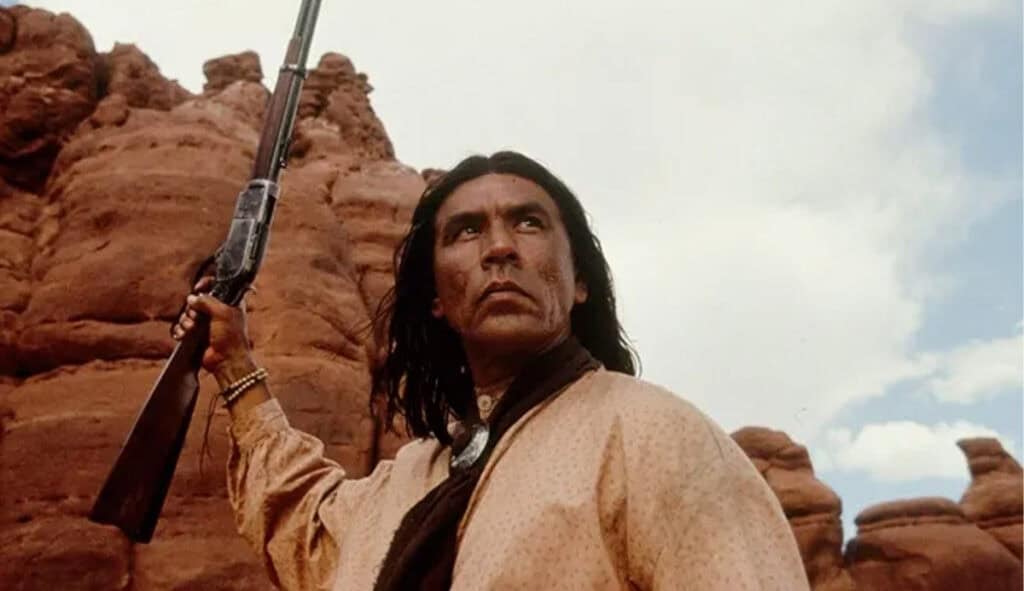
In 1972, he participated in the Trail of Broken Treaties demonstration, a cross-country caravan protest advocating for Native American rights, which ended in the occupation of the Bureau of Indian Affairs building in Washington, D.C. Studi was among those arrested during the occupation. The following year, in 1973, he participated in the Wounded Knee Occupation, a 71-day standoff between Native American activists and federal authorities. The occupation was a pivotal moment in the American Indian Movement (AIM), which sought to draw attention to the historical injustices and ongoing oppression faced by Native American communities. Studi’s involvement in these events solidified his commitment to Native American rights.
Wes Studi has openly discussed how his experiences in Vietnam led him to seek out new thrills and challenges. He has admitted to trying dangerous activities, like bull-riding, to recapture the adrenaline rush he felt during combat, a common habit of those who have served in battle. However, he eventually discovered that acting, which he began in community theater, provided a similar sense of excitement and fear. No matter your preparation, things could still go to shit, and you had to adapt. which he found fulfilling, without the same risks of physical harm.
As we delve into some of the roles Wes Studi played, let’s keep in mind that he’s been prolific for nearly 40 years, and we’re not going to talk about everything he’s ever done. Ain’t nobody got time for that. Wes Studi’s first movie appearance was in the minor role of Buff, a Vietnam Veteran, in the 1989 comedy-drama film Pow Wow Highway. The film’s exploration of indigenous identity, cultural preservation, and the impact of historical trauma resonated with Studi’s own advocacy work and personal experiences.
Iconic Performance in Dances With Wolves, Last of the Mohicans & more
Wes Studi entered the public consciousness in the 1990 film Dances with Wolves. Studi’s performance in the film was praised for its authenticity and nuance, which helped establish him as a talented Native American actor. He has said that he was proud to be a part of the film, as it was one of the first major Hollywood productions to feature Native American actors in leading roles and to tell a story from a Native American perspective. While he initially expressed insecurity at speaking the languages of other Native American tribes on film, he developed into an accomplished and respected linguistics expert.
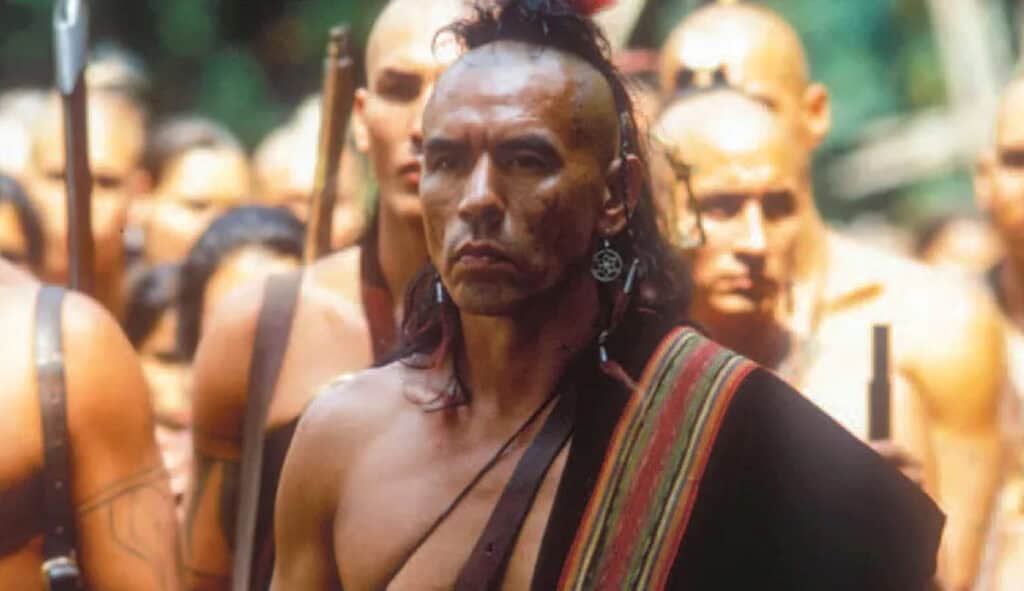
After a small role in Oliver Stone’s The Doors in 1991, Studi would take on the role he came to be best known for. 1992’s The Last of the Mohicans was an amazing vehicle for Daniel Day-Lewis, but the movie doesn’t work without Wes Studi’s authentic and layered portrayal of the antagonist. Studi masterfully brings to life the complex villainy of this character, Magua, whose misguided yet justifiable motivations drive a relentless quest for vengeance, fueled by an unyielding loyalty that makes his character all the more compelling and human. Studi underwent extensive survivalist and combat training for the film, which I’d think he took to pretty well, considering his experiences in real combat. And he delivers perhaps the coldest line in cinema history: “When the Grey Hair is dead, Magua will eat his heart. Before he dies, Magua will put his children under the knife, so the Grey Hair will know his seed is wiped out forever.”
Wes Studi featured on every episode of the 1993 Western television show Ned Blessing: The Story of My Life and Times in 1993 on CBS. He plays the role of One Horse with a more playful energy than his usual approach, and that energy infects the story. He continued his 1993 by navigating the treacherous landscape of the French and Indian War in TV movie The Broken Chain. Following that, he faced the immense pressures of his first major leading role and depicting a real-life historical figure who had descendants serving as actors and consultants in the Walter Hill movie Geronimo: An American Legend.
Life as a character actor
Studi brought his trademark physicality to Muay Thai master Victor Sagat in the 1994 videogame adaptation Street Fighter. He relished the opportunity to work alongside martial arts masters. He also performed motion capture for the subsequent videogame, an experience that would serve him 15 years on.
In 1995, Wes Studi lent his commanding, authoritative voice to the documentary series 500 Nations, a sweeping exploration of Native American history and culture. He followed that up by reprising his One Horse character from Ned Blessing in Lone Justice II. He’d run it back again the next year for Lone Justice III.
Then came 1995’s Heat. Studi is typically intimidating through his demeanour and dialogue; you’ll see that Studi brings his signature subtle yet commanding presence and shares excellent chemistry with Al Pacino. As a lifelong learner, Studi embraced the opportunity to work alongside one of the greats, soaking up knowledge and experience that would contribute to his own growth as a masterful actor in his own right. In Heat, Wes Studi demonstrates his range by portraying a character whose Native American heritage is a natural aspect of their identity, rather than the sole defining trait.
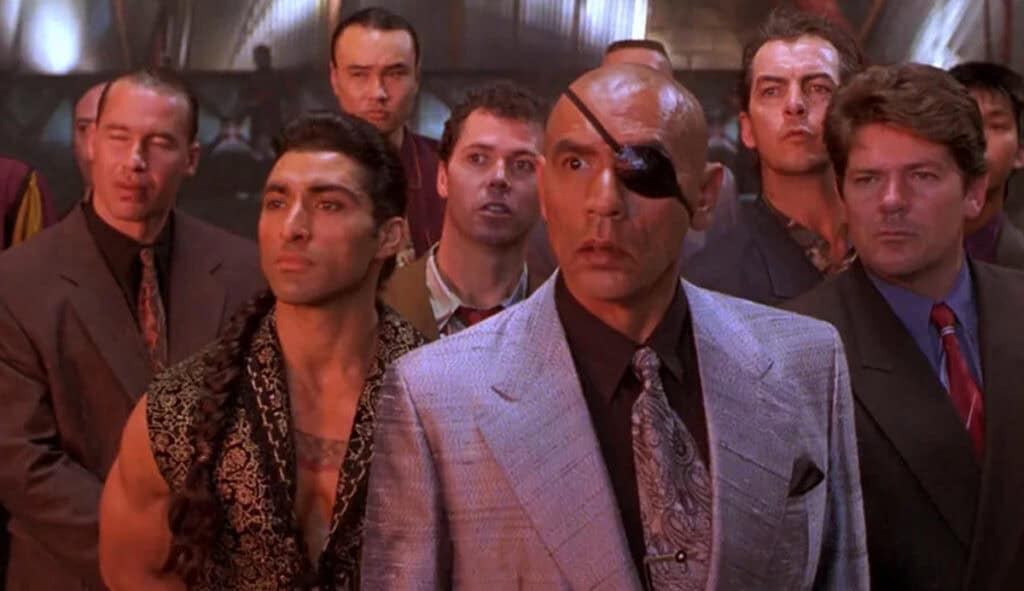
Aaaaand then he’d return to his comfort zone as Oglala Lakota war leader Chief Red Cloud in the TV movie Crazy Horse in 1996. Then, one of the nicest guys in Hollywood played a total dick in the 1998 creature feature Deep Rising. His character, Hanover, is so consumed by his failure to betray someone that he unwittingly invites a painful death for another failed chance.
1999’s Mystery Men was Studi’s first real exposure to comic actors, where he learned that the highest compliment a comedian can pay to another isn’t laughter but the words, “That’s funny.” Though Studi’s character, The Sphinx, is technically a former Mexican luchador, it still serves to parody the “Magical Native American” stereotype, emblemized by his use of antimetabole and cryptic phrases to create a sense of enigmatic wisdom. This movie resonates even more today than when it was released, as we’re still fully in the throes of superhero movie fatigue.
A busy actor
In 2000, Wes Studi featured in Wind River. No, not the 2017 one with Jeremy Renner. The 2000 film might actually be a solid educational film about Native history and relations were it not for the violence that more than earns the film’s PG-13 rating. In 2001, he played Commander Trager in Ice Planet. Studi’s major venture in the ensuing years was as Lieutenant Joe Leaphorn in the mystical crime drama series Skinwalkers, which included the first TV movie and the three-episode series Skinwalkers: The Navajo Mysteries in 2002 and the TV movies A Thief of Time and Coyote Waits in 2003. The series was well-received and garnered a loyal audience on PBS.
In 2005, Wes Studi played real-life Powhatan leader Opechancanough in The New World, Terrence Malick’s beautifully shot interpretation of the Captain Smith/Pocahontas myth and real Jamestown Settlement history surrounding it. Studi brought his typical measured but powerful performance to the role. He played a more off-kilter character in the 2006 Western drama Seraphim Falls. Leads Liam Neeson and Pierce Brosnan were excited to feature in their first Western, and it wouldn’t surprise me to hear they leaned on Studi’s experience and expertise in the genre.
Wes Studi brought the legendary Wovoka to life in the critically acclaimed 2007 film Bury My Heart at Wounded Knee. Based on Dee Brown’s book, this historical drama was praised for its historical accuracy. In 2009, Studi produced and starred in The Only Good Indian, delivering a powerful performance as a character grappling with his Native American heritage. His next film, Call of the Wild 3D, didn’t reach the same heights, but 3D always makes a movie better, right? Right?
Also in 2009, Wes Studi played the role of General Linus Abner in the TV series Kings, balancing the appearance of loyalty with an ambition that corrupted his morality. I know I just made fun of 3D movies, but James Cameron’s Avatar is perhaps the best and most successful use of the technology. In portraying Na’vi chieftain Eytukan, Studi took on the challenge of emoting not only in a language he helped craft exclusively for the film, but also in a motion capture suit, including a sensor jutting from his face. But let’s be real, Avatar has basically the same story as the movie that got West Studi his start, Dances with Wolves.
Hostiles and his Oscar
Studi played Chief Many Horses on three episodes of Western TV series Hell on Wheels starting in 2011. In the role, he was tasked with displaying strength in the face of devastating loss. There was 2012’s Being Flynn, Robert De Niro, and Wes Studi gave earnest performances. 2014’s A Million Ways to Die in the West is mostly useful as a reminder that Seth MacFarlane is funnier in animated form, but Studi likely appreciated another opportunity to showcase his comedic chops.
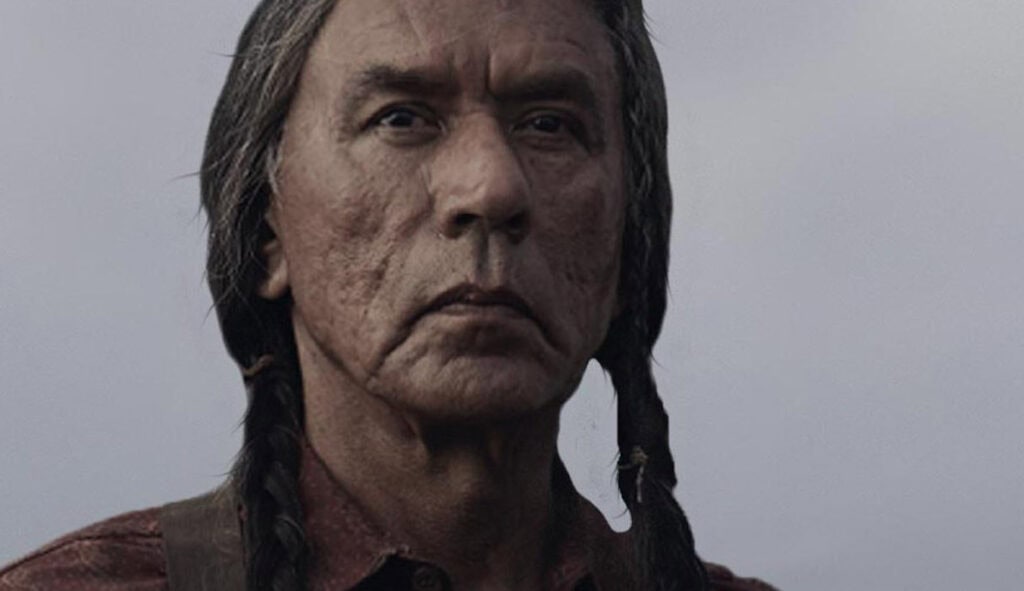
Wes Studi lent his voice to Windlifter in the 2014 animated film Planes: Fire & Rescue and its accompanying videogame. The following year, he took on the role of Chief Levi Gall in the TV series The Red Road. Studi called his time as mystical Apache Kaetenay on Showtime horror mystery series Penny Dreadful in 2016 “a refreshing and wonderful experience”. Though he’d embraced mysticism in many of his roles, to this point, this was his first real foray into pure fantasy fare.
In 2017, Wes Studi delivered a powerful performance as Chief Yellow Hawk in Scott Cooper’s Hostiles, starring opposite Christian Bale. The film’s themes of finding common humanity in the face of adversity resonated deeply with Studi, who drew upon his own experiences serving in the Vietnam War to inform his performance.
In 2019, Wes Studi was honoured with a Governor’s Award, an Oscar for lifetime achievement in acting. This could be considered the first Oscar for a Native American actor, depending on where you fall on Ben Johnson. That also opens it up to being the first Oscar for any Native American since Buffy Sainte-Marie has since been exposed as a Pretendian. A couple of months later, he was listed at #19 in The New York Times’ list of the “25 Greatest Actors of the 21st Century (So Far)”.
In 2021, he played the role of Bucky in the TV series Reservation Dogs. The show has received critical acclaim for its representation of Native American culture and its exploration of themes such as identity, community, and the challenges of adolescence and self-discovery. In 2022, he voiced Sunny in Spirit Rangers, an animated preschool series about three young Native American siblings who can transform into spirit rangers to protect the national park they call home. Sunny is a literal sun. 2022’s A Love Song was Studi’s first time as a love interest and first on-screen kiss at 74 years of age.
It wouldn’t be unreasonable or inaccurate to call West Studi the greatest Native American actor of all time, but it might be a bit reductive. As he said himself in an interview, “Your legacy will be made up of what you did and what you said, not who you are.” He is passionate about his Cherokee heritage and bringing awareness to the excellent aspects of Native American culture, but his life and work transcend labels. His greatness is universal.
As a seasoned actor, activist, and artist, Studi embodies more than just his characters – he represents a legacy of resilience and cultural pride. In addition to his teaching and advocacy of and for Native American issues, he is a gifted musician, playing guitar and bass in bands for a long time in Firecat of Discord with his wife Maura Dhu.
As for acting, ask him, and he’ll tell you, “I want to continue to do this until I can’t.” And that isn’t just lip service. He has 9 projects in-flight, including films by first-time and upcoming directors. His legendary stature means his presence on a cast sheet is enough to grant a film legitimacy. As we’ve seen, Wes Studi’s story is a bridge between cultures, a testament to the transformative power of art, and the resilience of the human spirit that flows through and between us. And that he is a total badass.



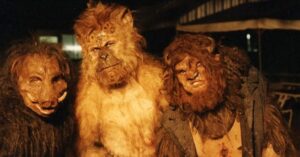
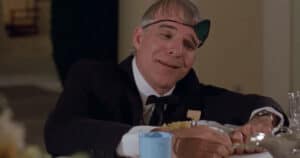




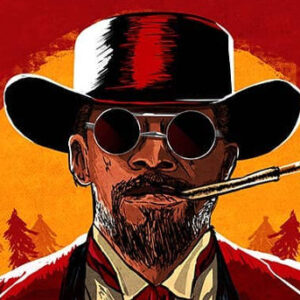
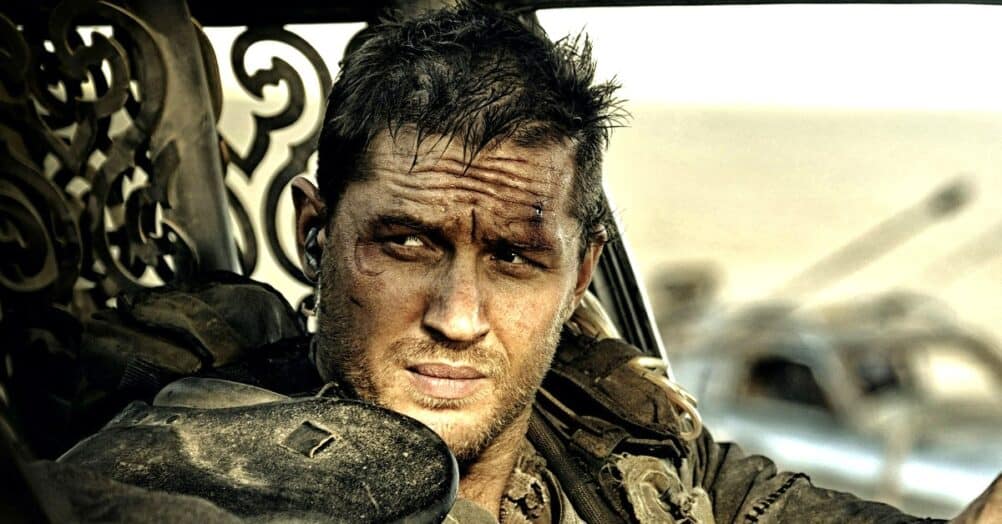
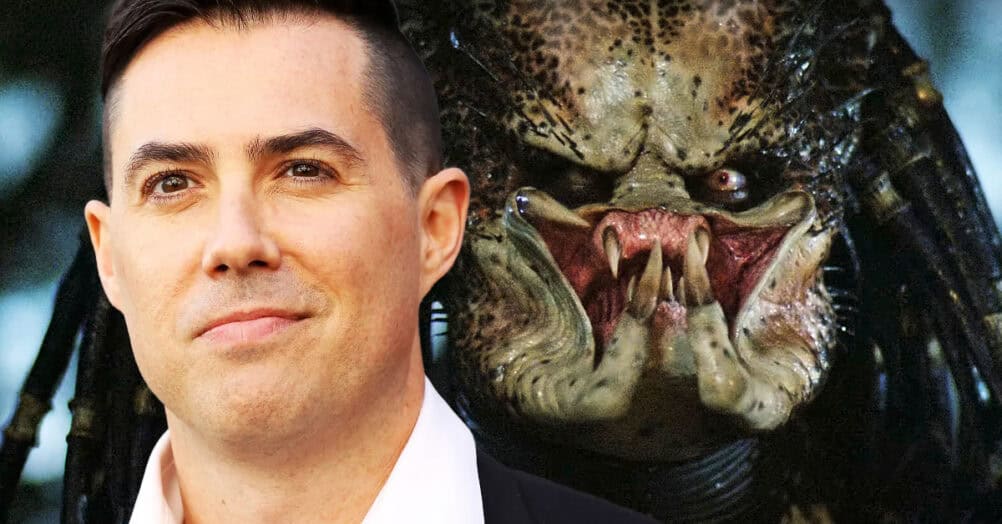
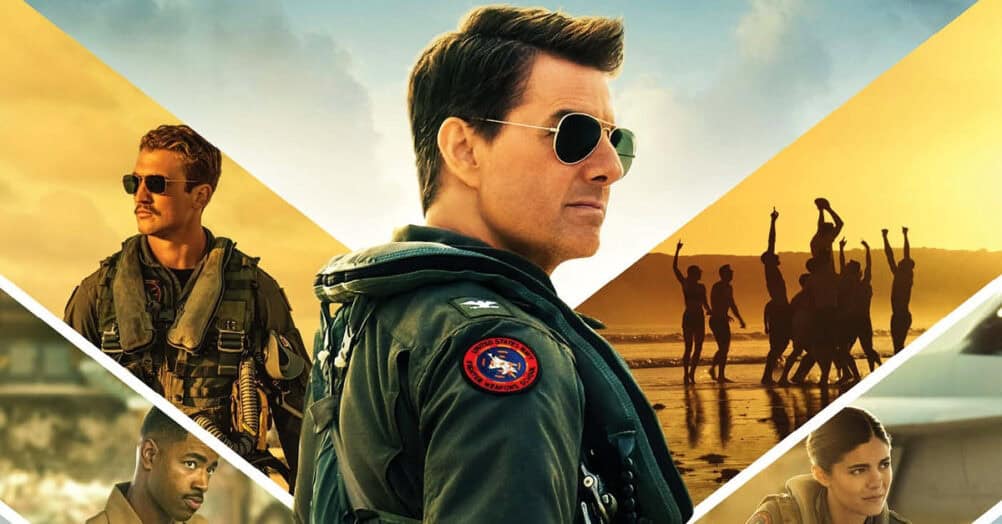

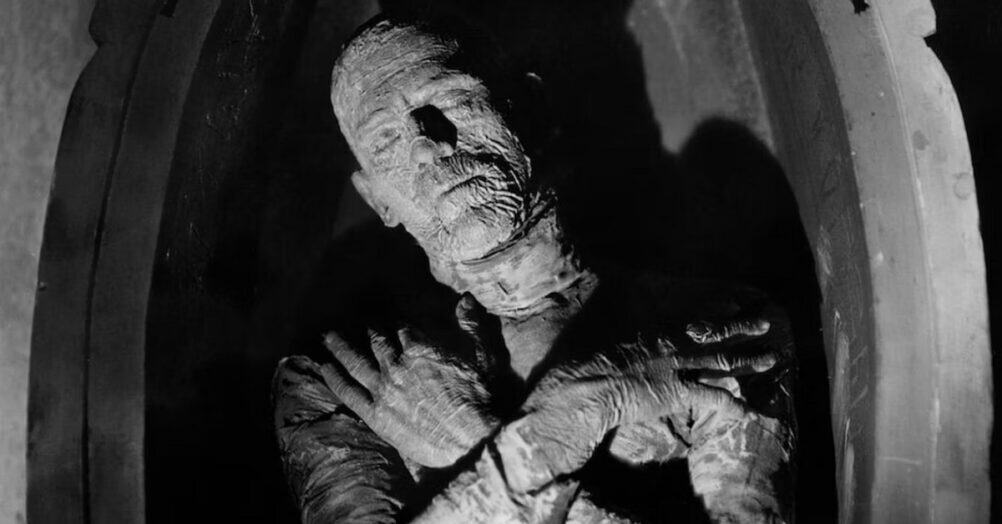


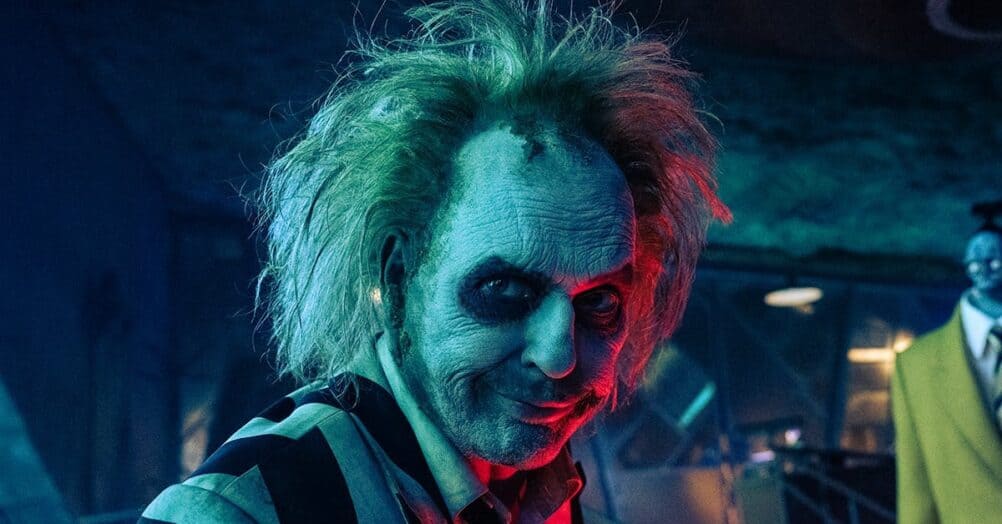

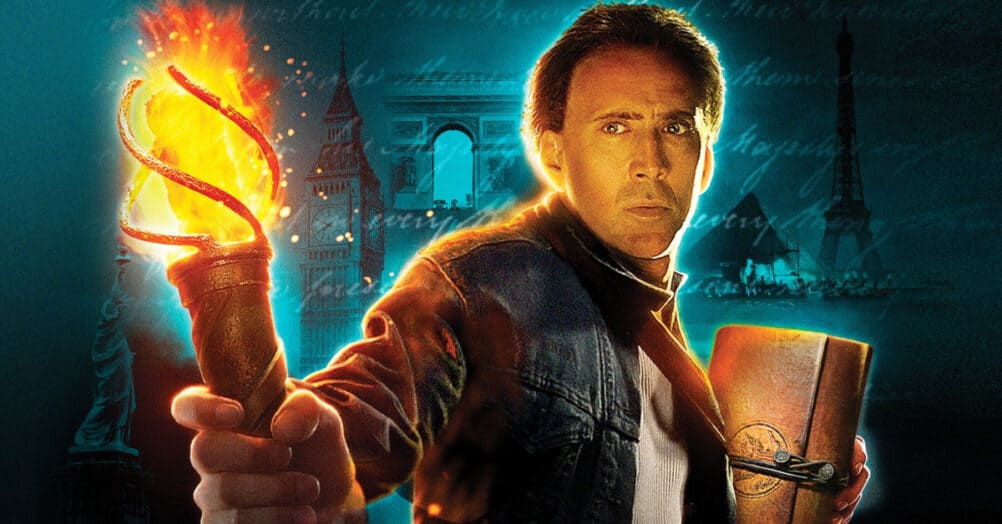
Follow the JOBLO MOVIE NETWORK
Follow us on YOUTUBE
Follow ARROW IN THE HEAD
Follow AITH on YOUTUBE